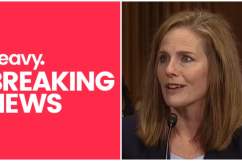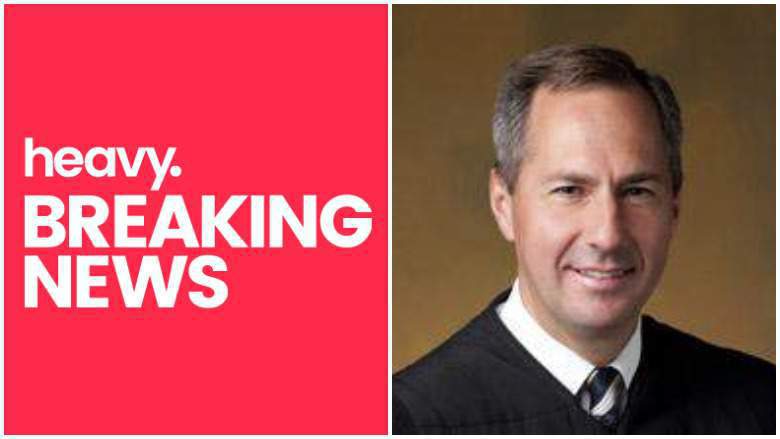
Thomas Hardiman’s abortion stance is expected to get a lot of scrutiny if President Donald Trump nominates him to fill Anthony Kennedy’s seat on the U.S. Supreme Court.
With Kennedy a centrist and often swing vote, some feel Roe v. Wade hangs in the balance of the nomination. Hardiman, a federal judge nominated by George W. Bush, is widely reported to be one of the president’s four final choices for the spot; the other three are Judges Amy Coney Barrett, Raymond Kethledge, and Brett Kavanaugh. Trump has said he will announce his pick on July 9, 2018.
The New York Times and Wall Street Journal then reported that Trump has chosen someone but didn’t reveal the name. However, the Journal wrote, “Allies of Judge Hardiman said they had been told to be ready to start touting the one-time taxi driver’s blue-collar roots…They also said they’d been told the judge was in Washington, D.C., for a conference.” It’s not clear, though, whether allies of other candidates were similarly told to be ready.
In the end, Trump chose Brett Kavanaugh.
Hardiman, a federal judge based in Pennsylvania, was Trump’s second choice when he named Neil Gorsuch to the nation’s highest court. Is it known how Hardiman feels about abortion? What’s he said on abortion and/or Roe v. Wade?
Here’s what you need to know:
Hardiman Overturned the Conviction of an Anti-Abortion Protester
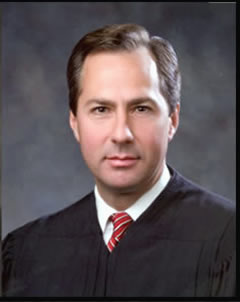
(Western District of Pennsylvania)Thomas Hardiman is a registered Republican.
There aren’t that many clues as to how Hardiman would rule on Roe v. Wade other than the fact he’s generally considered to be a conservative-oriented jurist. “Hardiman has never had the opportunity to weigh in” on abortion rights questions, according to The Hill. That stands in stark contrast to one of the other finalists, Amy Coney Barrett, whose writings on things like stare decisis and staunch Catholic beliefs have made her the candidate considered by many to be the most likely to overturn Roe.
Hardiman did join an opinion in 2010 that “overturned the conviction of an anti-abortion protester arrested outside the Liberty Bell Center in Philadelphia,” Reuters reports, but the news site added, “Though the court said park rangers had violated his free speech rights, the case was not about the right to abortion itself.” You can read the opinion here.
Hardiman has not spoken publicly about his stance on abortion. “Our role as judges is to interpret the law,” Hardiman has said.
Hardiman is also Catholic, as are the other finalists with the exception of Kethledge, an evangelical, according to NPR.
Hardiman Sided With the Little Sisters of the Poor
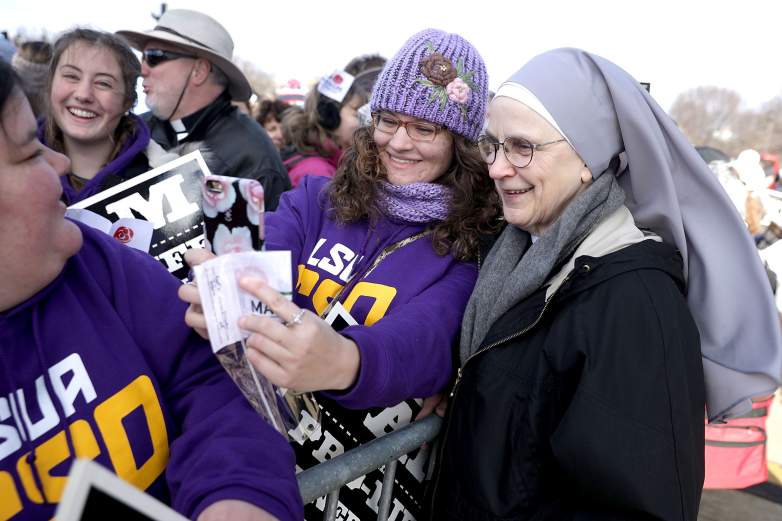
Madeline Runya of Louisana State University at Alexandria (C) takes a selfie with Sister Cecilia of the Little Sisters of the Poor in Baltimore before the start of the 44th annual March for Life January 27, 2017 in Washington, DC.
Although the case wasn’t on abortion specifically, some point to a Hardiman ruling involving the Little Sisters of the Poor as a possible sign of his inclinations on Roe.
The Hill reports that case involved the “so-called ‘birth control mandate’ in Obamacare, that required organizations to pay for plans that offer contraception.” A religious group named the Little Sisters of the Poor “claimed the law violated its religious freedom.”
According to FiveThirtyEight, Hardiman allowed the Little Sisters of the Poor, who are Catholic nuns, “to join the Trump administration in a case involving expanded exemptions from the Affordable Care Act’s contraception mandate.”
You can see a detailed history of the case with documents here.
National Catholic Reporter adds these religious-oriented Hardiman cases into the debate: “…in a case where an evangelical family complained that its religious liberty was hindered when the family’s kindergarten-age child was prevented from reading from the Bible during show-and-tell, Hardiman ruled in favor of the family. And in a case where a child was prevented by public school officials from handing out invitations to a party at her church, Hardiman sided against the school district.” Again, although those cases don’t deal with abortion specifically, they give some sense of how Hardiman sees issues important to social conservatives.
An Anti-Abortion Leader Identified Hardiman & Barrett as Trump’s Best Choices From Their Perspective & Those Who Support Roe Are Concerned About All Four Finalists
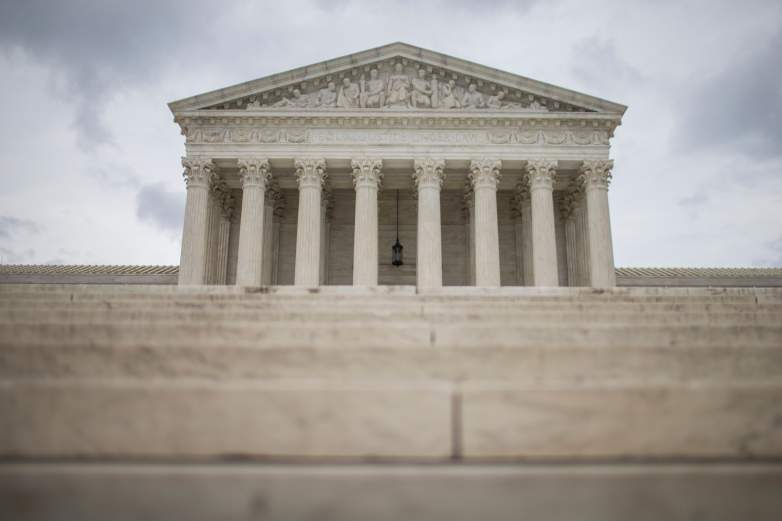
GettyThe U.S. Supreme Court is pictured June 27, 2018 in Washington, DC.
Family Research Council President Tony Perkins said he believes Hardiman and Barrett would be the best choices from the standpoint of those who oppose abortion. The site LifeNews.com identifies Perkins as “a major figure in pro-life advocacy.”
NARAL, a group that supports Roe, wrote in a press release that it is concerned about Hardiman, Barrett, Kavanaugh and Kethledge. “Research by NARAL Pro-Choice America into these judges shows that nothing in their past would indicate that they are anything other than a likely vote to overturn Roe v Wade, criminalize abortion and punish women,” the group wrote.
In addition to the Little Sisters of the Poor and protester cases, NARAL wrote, “Hardiman contributed to elected officials including Rick Santorum, George W. Bush, Melissa Hart, Phil Gramm, and Arlen Specter, some of whom are anti-choice,” and NARAL pointed to his membership in the conservative Federalist Society.
